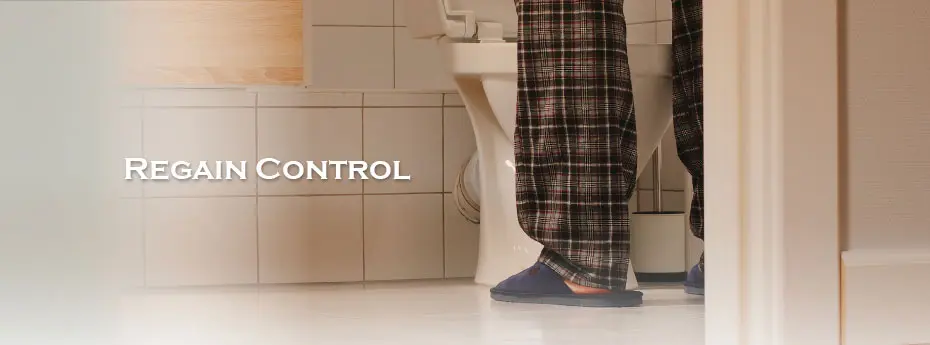

Regain Control: Prostate Health
Are you needing to pass urine more often than usual, and waking up frequently at night to do so? If it burns or hurts, with dribbling when you relieve yourself, it could point to a prostate issue.
Common prostate conditions
The body will change with age.
However, if urinary symptoms are affecting your quality of sleep and daily life, it could point to a problem with your prostate, the gland responsible for semen production in the male reproductive system.
Read on to learn about the common prostate conditions causing these symptoms and the minimally-invasive treatment options available at Mount Elizabeth Hospitals. Our dedicated team of urologists and nurses will help you regain control of your prostate health.
Collapse All
Benign prostatic hyperplasia (BPH) is a non-cancerous swelling of the prostate gland. It is a common problem that typically occurs in men over 50 years old. The most notable symptoms of an enlarged prostate include an increased need to urinate, difficulty in passing urine, leakage, and a sensation that the bladder has not been completely emptied. In severe cases, there may also be blood in the urine.
The following treatment options have been shown to have very positive outcomes, enabling patients to return to their normal lifestyles with minimal side effects.
Minimally invasive treatments for benign prostatic hyperplasia
The following treatment options have been shown to have very positive outcomes, enabling patients to return to their normal lifestyles with minimal side effects.
- Transurethral resection of the prostate (TURP)
- Laser prostatectomy
- Prostatic urethral lift (PUL)
- Water vapour therapy
Done under general or spinal anaesthesia, TURP is used to treat moderate to severe BPH by surgically cutting away excess prostate tissue to restore normal urine flow.
Laser energy is passed through a flexible fibre tube to heat up and vapourise excess prostate tissue and restore normal urine flow.
Done as a day surgery, UroLift makes use of small permanent implants to draw apart enlarged prostate tissue that is preventing normal urine flow.
Done as a day surgery without the need for anaesthesia, water vapour therapy makes use of the thermal energy in water vapour to target enlarged prostate tissue and ‘shrink’ it down to restore regular urine and sexual function.
Collapse All
The third most common cancer amongst men in Singapore, prostate cancer is an abnormal growth of tissue in the prostate. While most prostate cancers grow slowly, the cancer cells may sometimes spread to other parts of the body.
Symptoms of prostate cancer include a burning or painful sensation while passing urine and the presence of blood in urine or semen, erectile dysfunction, weight loss, as well as pelvic, back or hip pain.
Treatment for prostate cancer
Minimally invasive surgical treatments such as a robotic radial prostatectomy can help patients overcome prostate cancer and regain control of their health. These treatments work by removing the affected prostate gland with greater precision over traditional open surgery. Benefits include less operative pain, a shorter hospital stay, and a faster recovery to regain urinary control and sexual ability.
Prostate conditions can be managed with both medical therapy and/or surgical procedures.
Our urologists will be able to share more details about your condition and the suitable treatment options for you.
"Don't let urinary symptoms ruin your life! A thorough check on your prostate and bladder will help identify and treat the cause."
Dr Sim Hong Gee, Urology & Robotic Surgeon, Mount Elizabeth Novena Hospital
Estimate Your Costs
Private healthcare can be affordable. Use our Hospital Bill Estimator to determine the estimated cost of prostrate procedures. You may also be able to use your hospitalisation insurance.
Estimate Cost Brain & Spine Care
Brain & Spine Care

